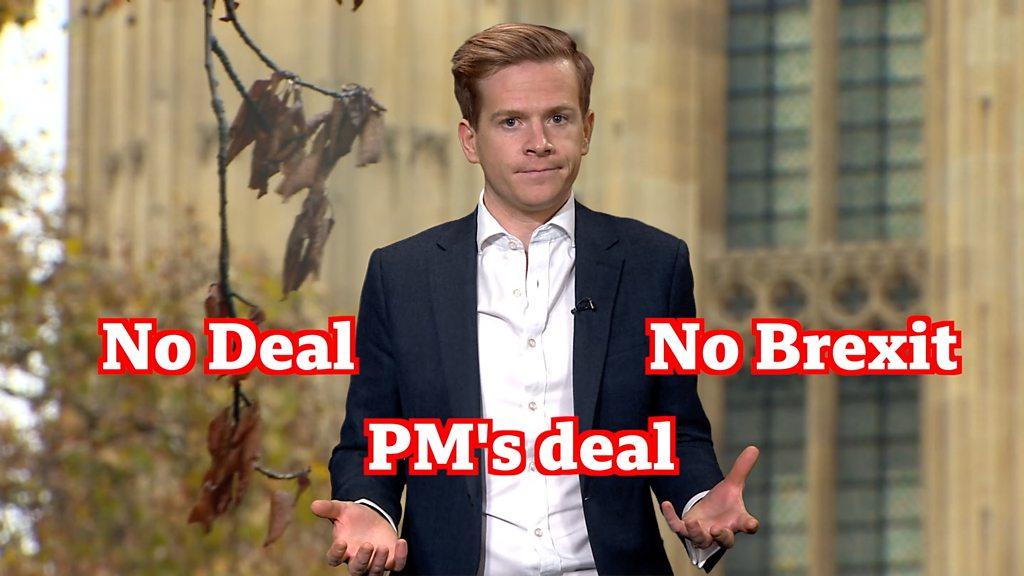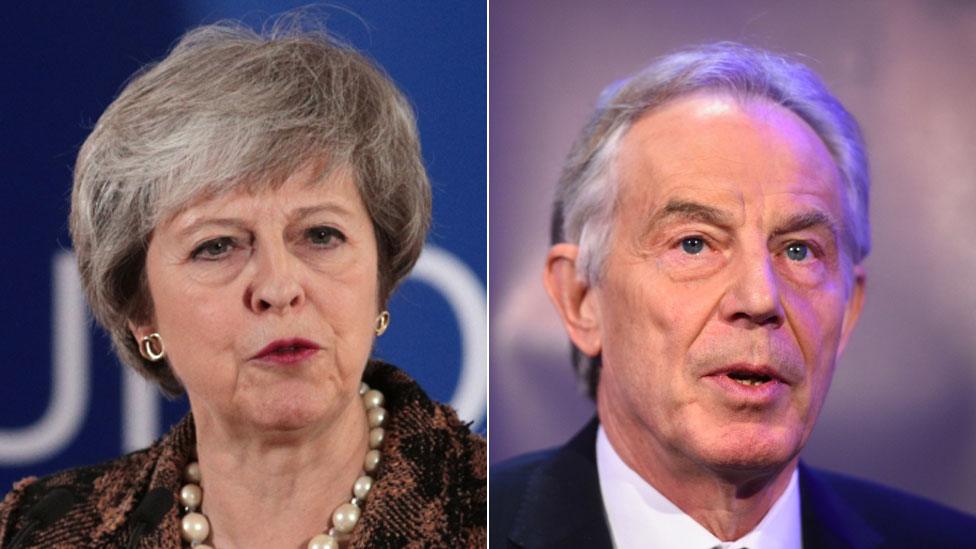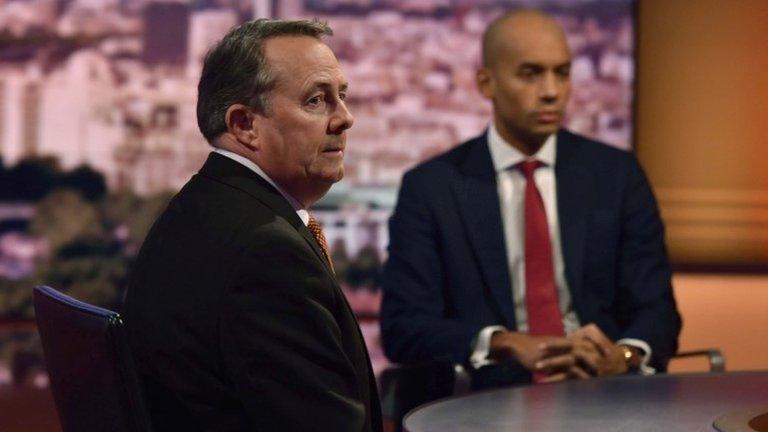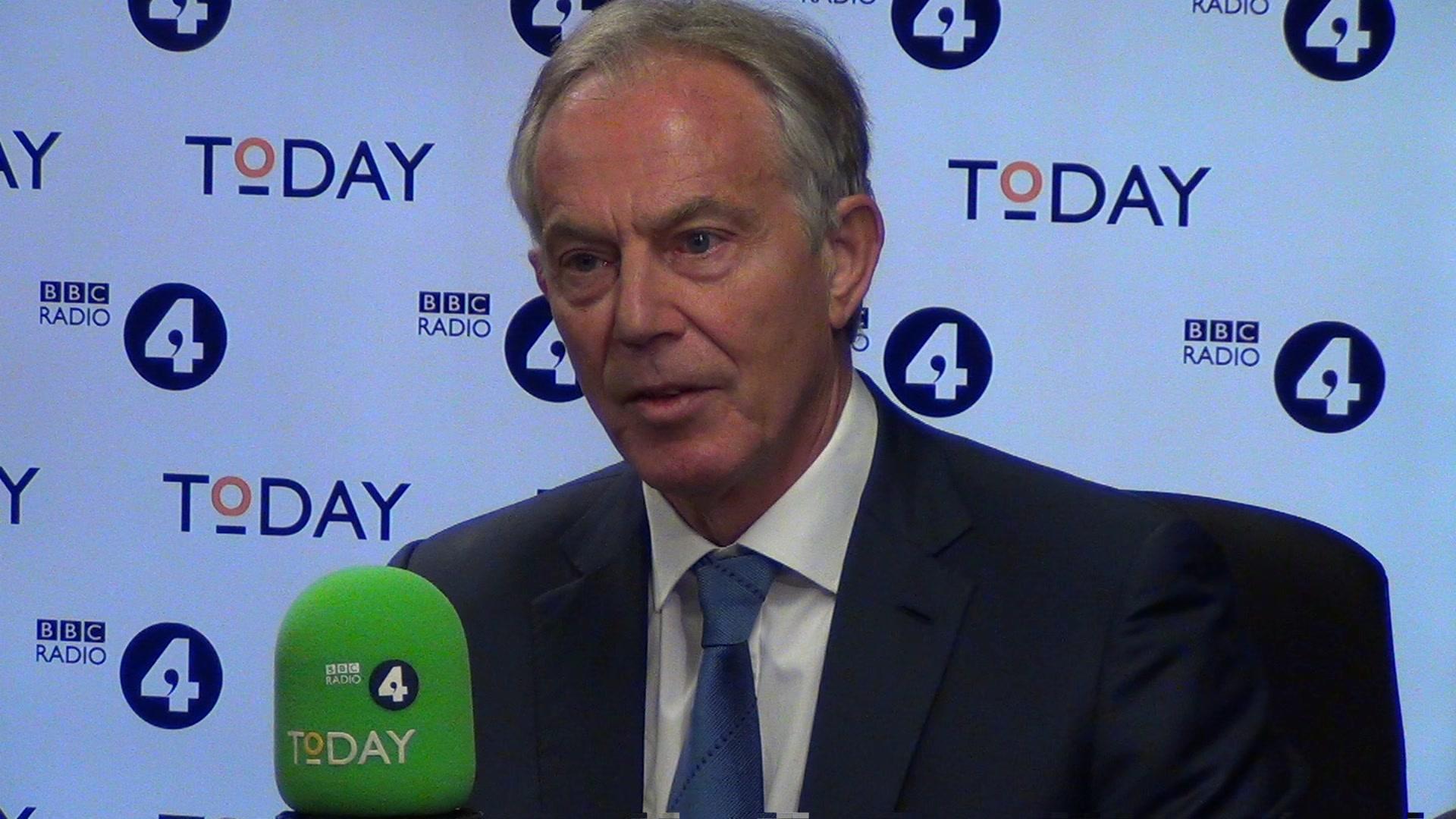Brexit: Theresa May says David Cameron 'not advising her'
- Published

David Cameron quit in the aftermath of the 2016 referendum, which he was instrumental in calling
Theresa May has rejected reports she is taking advice from her predecessor David Cameron on what to do in event of a Brexit deadlock in Parliament.
Sources have told the BBC the former PM has been in touch with Mrs May about giving the Commons a "greater role" if her proposed deal is vetoed by MPs.
Some ministers want alternatives to her deal to be considered and voted upon.
But Mrs May told MPs that the last time she had spoken to her predecessor was in the middle of November.
Asked about it in the Commons by Lib Dem Layla Moran, the prime minister said she had spoken to Mr Cameron and another former prime minister "as a matter of courtesy" when the UK's Brexit agreement with the EU was finalised on 14 November.
Mr Cameron was "not advising" her, she told MPs.
However, the BBC understands the two exchanged a brief text message on Wednesday, when Mrs May survived a confidence vote of Conservative MPs.
Mrs May has announced that MPs' vote on the terms of the UK's exit from the EU, which was postponed last week, will now take place in the week of 14 January.
She said she was focused on getting MPs' support for her agreement and there were "no plans" for MPs to be given the opportunity to express their views on possible alternatives.
But the BBC understands Mr Cameron has spoken to the prime minister about the matter, and how a series of "indicative votes" on various different Brexit outcomes may be handled if her deal is rejected.
In a rare public comment on the Brexit process last week, Mr Cameron, who campaigned to remain in the EU in the 2016 referendum and quit after the public voted to leave, said he supported the prime minister but was "worried" by signs that Parliament was not willing to approve her deal.
The UK is due to leave the EU on 29 March 2019 - the deal sets out the terms of exit and includes a declaration on the outline of the future relations between the UK and the EU.
But it only comes into force if the UK and European Parliaments approve it.
In a statement to MPs updating them on Thursday's talks with European leaders, Mrs May said holding another referendum on Europe, as some have suggested, would "break faith with the British people".
When and what will MPs vote on?
The prime minister has signalled MPs will vote on the deal during the week of 14 January, after resuming debate the previous week.
Labour and other opposition parties, as well as some Tory Brexiteers, say a decision is needed now, so alternative options can be considered if Mrs May's deal is rejected.
But the BBC's Norman Smith said it was not clear how they could force a vote any earlier.
Potential "Plan B" options include:
pursuing different Norway or Canada-style arrangements with the EU
leaving on the basis of a "managed no deal"
delaying Brexit to restart negotiations
hold a fresh referendum
The PM is coming under pressure from cabinet ministers to "test the will of Parliament" through a series of "indicative" non-binding votes - which would see MPs pass judgement on the options available in the hope of identifying the most popular and shaping the way forward.
The most recent examples of this happening were a series of votes on proposed reforms to the House of Lords in 2003 and 2007 - when all the propositions were rejected.
What are ministers saying?
Business Secretary Greg Clark told the BBC that he backed Mrs May's deal but if Parliament was implacably opposed, it should then be "invited to say what it would agree with".
Work and Pensions Secretary Amber Rudd made the same point, saying "all options" should remain on the table and if the deal was rejected "let's think about how we test the will of Parliament to find out where the majority is".
Could there be a second Brexit vote?
But International Development Secretary Penny Mordaunt, who has previously backed the idea of MPs having a free vote (ie not being told how to vote by their party leaders) on the EU agreement, said the referendum showed people had decided they wanted to leave.
"We asked the people to decide, they decided... that means we can't come up with something else in Parliament," she said.
As the referendum debate hots up
Calls for another referendum have grown in recent weeks amid signs a majority of MPs are opposed both to the deal on the table, but also leaving the EU without any kind of agreement.
Dame Margaret Beckett, a former foreign secretary who is a supporter of the People's Vote campaign for a fresh referendum, said the case was becoming "overwhelming" and was "the best way forward for our country".
"A new public vote would be different from the referendum in 2016 because we now know more about what Brexit means," she said.
"Any effort to force Brexit over the line without checking that it has the continued consent of the British people will only reinforce divisions."
Confused by Brexit jargon? Reality Check unpacks the basics.
But Mrs May told MPs that another vote "would do irreparable damage to the integrity of our politics, because it would say to millions who trusted in democracy, that our democracy does not deliver".
She added: "Another vote which would likely leave us no further forward than the last. And another vote which would further divide our country at the very moment we should be working to unite it."
Where are we with Mrs May's deal?
The PM, who survived a vote of no confidence in her leadership by Conservative MPs last week, told MPs that she had made progress in allaying the concerns of MPs about the controversial "backstop" plan to prevent a hard border between Northern Ireland and the Irish Republic, if no trade deal is reached.
At last week's summit, she said the EU had been clear that there was "no plot" to trap the UK indefinitely in the backstop.
The other 27 EU members, she added, were committed to using their best endeavours to begin talks on their future relationship with the UK immediately after the UK's exit and to try to conclude them by the end of 2020.
Talks over obtaining further "political and legal assurances" were continuing, she said, although the EU has suggested that it had provided the necessary clarification and no further meetings were on the agenda.
Labour leader Jeremy Corbyn said her deal was now "dead in the water" and the prime minister had "utterly failed in her attempts to deliver any meaningful changes".
- Published23 November 2018

- Published16 December 2018

- Published16 December 2018

- Published14 December 2018

